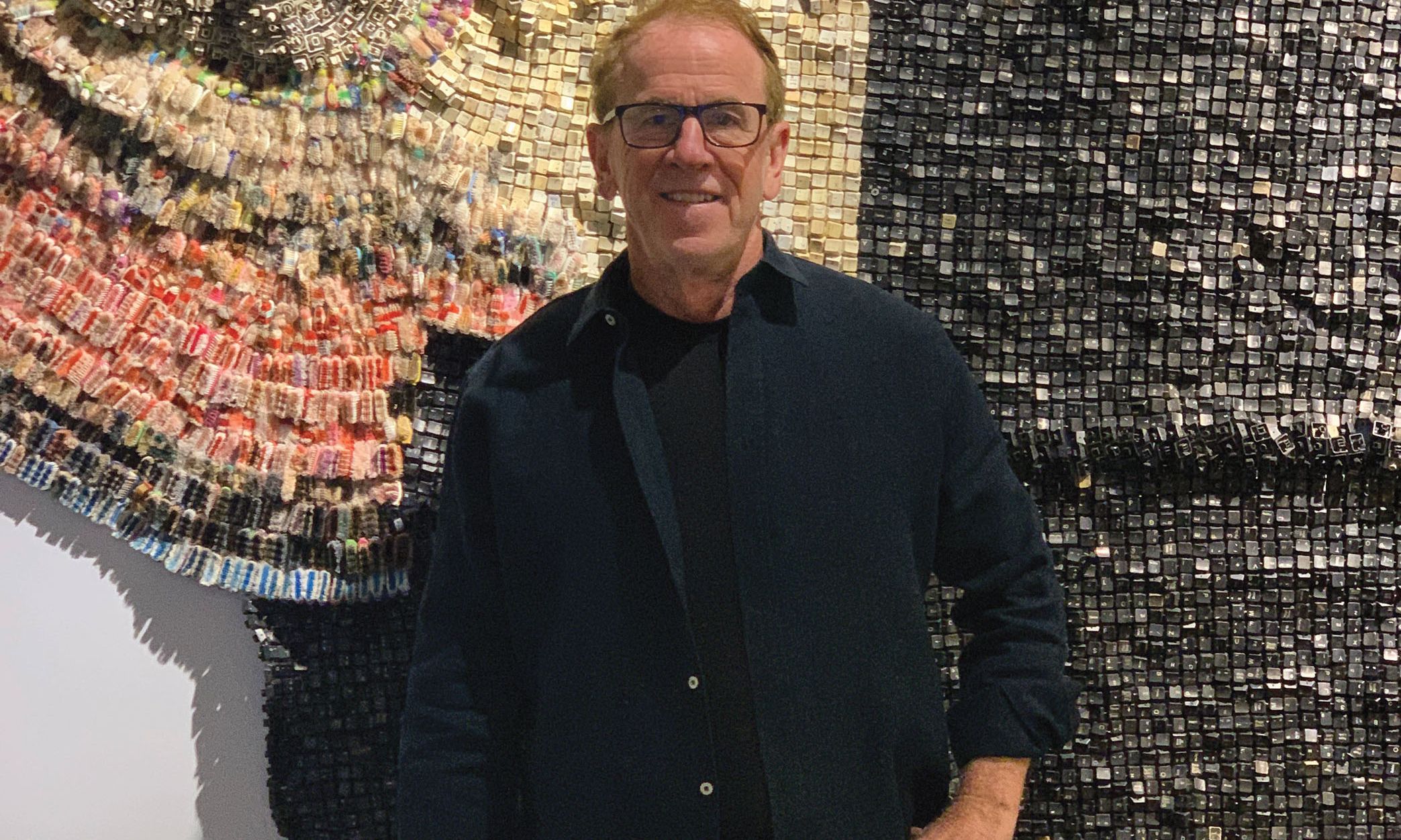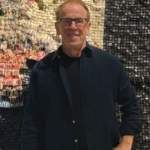John Quinn has launched an artist-in-residence programme at his law firm, Quinn Emanuel Urquhart & Sullivan © Alexis Hyde
For years, John Quinn has been known far and wide as one of the most fearsome trial lawyers in the world, but over the past decade, he has also become one of Los Angeles’s most passionate contemporary art collectors. That passion was ignited, somewhat improbably, when he opened a Los Angeles outpost of the quirky, Croatia-based Museum of Broken Relationships in 2016. Since then, his collection has grown rapidly to include works by artists across the spectrum between emerging and established, including Edgar Ramirez, Cannupa Hanska Luger, Woody De Othello, David Benjamin Sherry, Glenn Brown, Betty Tompkins and Mel Bochner.
In 2021, Quinn launched an artist-in-residence programme at the Los Angeles offices of his law firm (Quinn Emanuel Urquhart & Sullivan), which has since expanded to its New York and London offices—hosting 17 artists to date. Beyond supporting the residency’s participants, Quinn acquires works primarily from Los Angeles-based galleries, including Night Gallery and François Ghebaly Gallery.
The Art Newspaper: What was the first work you ever bought?
John Quinn: A landscape of a scene in Majorca by an unknown Spanish painter. I saw it at a flea market in Montreal. I used to really like plein air landscapes; my tastes have changed a lot.
An object from the Museum of Broken Relationships, Zagreb; Quinn opened a Los Angeles outpost in 2015 Hrvoje Polan/AFP via Getty Images
What was the most recent work you bought?
Outside of the incredible work we acquired from our most recent artists in residence, Lorenzo Baker and Rimski Chua, I acquired a Max Hooper Schneider work from François Ghebaly Gallery here in Los Angeles that we installed in the office and was an instant favourite of the whole staff.
How quickly do you decide to buy a work of art?
Pretty quickly! I try to delay deciding, but I usually can’t get an image I like out of my mind. I won’t buy immediately, but I will take a picture and get back to the gallery or seller within 24 hours.
What do you regret not buying when you had the chance?
Lots of things! A few that stick out from the recent past are an Ulala Imai from Nonaka-Hill
What is the most unusual place you’ve installed a piece in your home?
Forty feet up in a tree.
If you could have any work from any museum in the world, what would it be?
Diego Velázquez’s painting of his servant, the artist Juan de Pareja [of 1650], which is at the Metropolitan Museum of Art in New York. Velázquez emancipated him, and then De Pareja became a painter in his own right.
What are you looking out for during Frieze Los Angeles this year?
I always like to see what’s new and exciting. I take in what’s happening in the contemporary landscape very quickly and am always on the lookout for the next thing: something I’ve never seen before,
a new voice, a new point of view,
a new execution of craft, etc.
What’s your least favourite thing about art fairs?
I am obsessive-compulsive, so I have to see everything, but that’s on me.
What tip would you give to someone visiting Los Angeles during Frieze for the first time?
Los Angeles has such a vibrant arts scene, so make sure to visit the exhibitions on view around the city, from our institutions and non-profits to our galleries. There is always so much to see.
Where do you like to eat and drink near Santa Monica Airport?
I live on the other side of the world—in Pasadena—so I’m almost never in that area and have no clue what to recommend. But if you’re downtown seeing some shows, you should go to Q Sushi!


